Air France has carried out the first long-haul passenger flight to use sustainable aviation fuel (SAF) produced in Total’s French plants. The Air France A350 flew yesterday from Paris-CDG to Montreal with a fuel blend made up of 16% SAF produced from used cooking oil at Total’s La Mède biorefinery in southern France and at its Oudalle factory near Le Havre. The use of the ISCC-certified 100% French SAF avoided 20 tonnes of CO2 emissions, reported the airline. The initiative was a collaboration of Air France-KLM, Total, Airbus and the Paris airports operator Groupe ADP. The partners said that by developing and supporting France’s first industrial SAF production, this would pave the way for France to drive innovation in the industry’s energy and environmental transition. The country has introduced legislation that calls for aircraft to use at least 1% SAF by 2022 from all flights originating in France, with a wider EU ambition expected to mandate a ramp up to 2% by 2025 and 5% by 2030 as part of the European Green Deal. Meanwhile, Air bp has delivered SAF to Clermont-Ferrand Auvergne Airport in France, its first ongoing supply of the fuel in the country.
Commenting on the Air France flight, Benjamin Smith, CEO of Air France-KLM, said: “France currently has the opportunity to position itself as a leader in the production and use of sustainable fuels and we are doing everything possible to contribute to this with our partners. Supporting the emergence of an economically viable French aviation biofuel sector for all the parties involved is a strategic priority for the country and the group.”
Smith added that fleet renewal together with SAF constituted the airline group’s main lever in the medium term for achieving its target of halving CO2 emissions per passenger/km by 2030. Between 2014 and 2016, Air France carried out 78 flights powered by a 10% SAF blend in collaboration with a Total affiliate and the group said it intends to strengthen leadership in SAF in the years ahead, while contributing to research on future generations of aircraft.
To meet French SAF blending requirements, Total reported it will also produce SAF at its Grandpuits zero-crude platform near Paris as from 2024.
“After successfully launching SAF production at our facilities in France last March, we are continuing to adapt our industrial facilities to prepare for the growing demand from the aviation industry in the coming decade,” said Total CEO Patrick Pouyanné. “By directly reducing the carbon intensity of the energy products used by our aviation industry customers, we are actively working with them to achieve our ambition to get to net zero by 2050, together with society.”
The A350 used for the flight to Montreal consumes 25% less fuel than its predecessor, pointed out Air France, and the aircraft was serviced at Paris-CDG by the first 100% all-electric refuelling truck, which was developed in France with Total expertise, with all the ground support equipment used being fully electric powered.
“This first flight from Paris-CDG airport is a symbol of our ambition to decarbonise air transport by integrating SAF into aircraft,” said Groupe ADP CEO Augustin de Romanet. “The European air transport roadmap aims for zero net emissions by 2050 and we are keen, as an airport operator, to support this energy transition and to embark without delay on the path of transforming our operation process and infrastructure.”
Groupe ADP recently launched an international call for expressions of interest to build a hydrogen industry at its airports. The objective, it said, was to explore the possibility of establishing ‘hydrogen hubs’ in advance of hydrogen-powered aircraft potentially entering service by 2035, a goal set by Airbus.
Toulouse-headquartered Airbus has installed SAF refuelling stations at its industrial facilities so it can be used in production operations, as well as for aircraft deliveries. It is also conducting series of tests to certify its aircraft to fly with 100% SAF in the coming decades.
“Sustainable fuels are a major lever for achieving our objectives of decarbonising the aviation sector, and Airbus supports all initiatives that contribute to their development and use on commercial flights,” confirmed Guillaume Faury, Airbus CEO. “Coordinated action by all stakeholders is needed to increase the share of these sustainable fuels, which can be used today on up to 50% of our aircraft without any modification or operational impact, thereby reducing their environmental footprint.”
The SAF supplied by Air bp to Clermont-Ferrand Auvergne Airport was also made from ISCC-certified waste-based sustainable feedstocks such as used cooking oil and blended at around 35% with traditional jet fuel. Air bp customer Michelin Air Services was the first to uplift the SAF blend according to agreed commitments for ongoing supply at the airport. The demand from Michelin means that approximately 30% of the airport’s total volume will be supplied as this SAF blend.
“We are committed to decarbonising our flights with the use of SAF supplied by Air bp, thereby illustrating the Michelin Group’s ‘All Sustainable’ strategy,” said Corine Brunet, CEO, Michelin Air Services.
Air bp said it could supply SAF to other customers at the airport and encouraged parties interested in a supply agreement to come forward.
Said Air bp Sustainability Director Andreea Moyes: “We are excited to see our first ongoing SAF supply in France. This underlines bp’s commitment to working with stakeholders to explore its viable sale and purchase, which we believe is one of the aviation industry’s key routes to reducing carbon emissions and supports bp’s net zero ambition.”
Air bp refuels aircraft with SAF blend at Clermont-Ferrand (photo: Air bp):
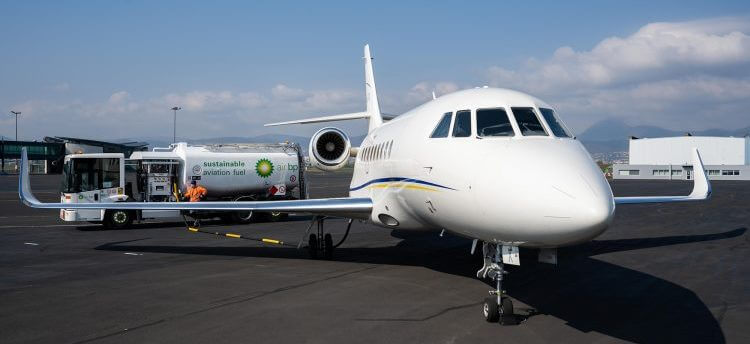
Top photo: Air France A350 takes on SAF blend at Paris-CDG prior to flight to Montreal


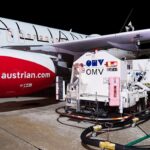
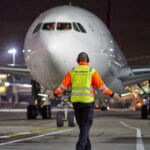
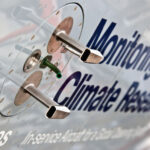


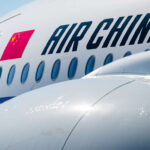
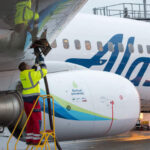
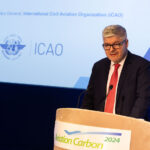
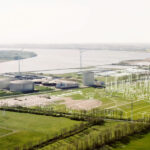
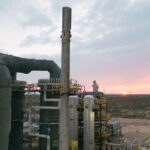

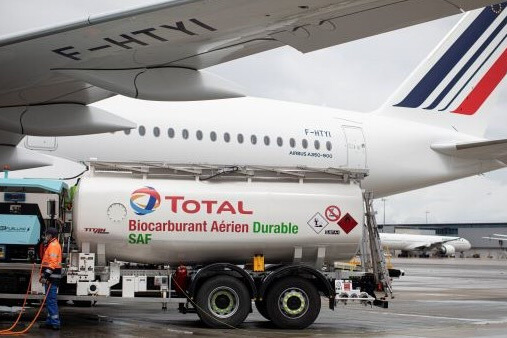

More News & Features
Progress on decarbonising the airline sector has been slow this year, says IATA chief
EASA releases status report on Europe’s SAF production and readiness to meet blending targets
New study highlights differing strategies and barriers to decarbonising aviation in UK and Europe
New partnerships formed to drive e-SAF production in Nordic markets
IAG continues to go big on e-SAF as it inks 10-year offtake agreement with Infinium
US on the pathway to achieving its 2030 SAF Grand Challenge target, says DOE report